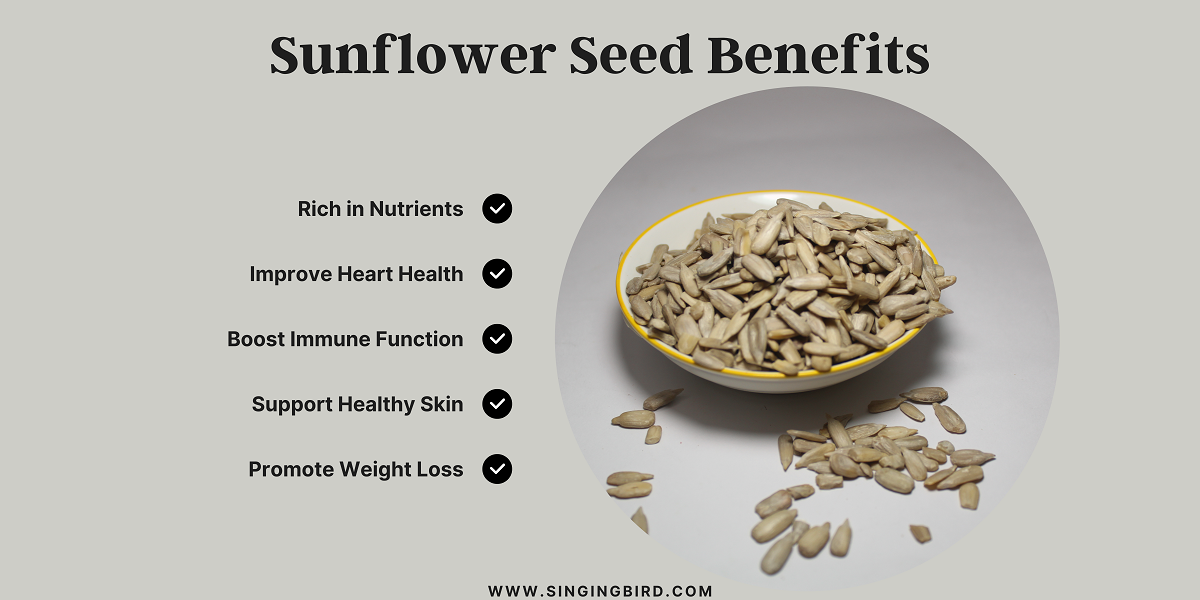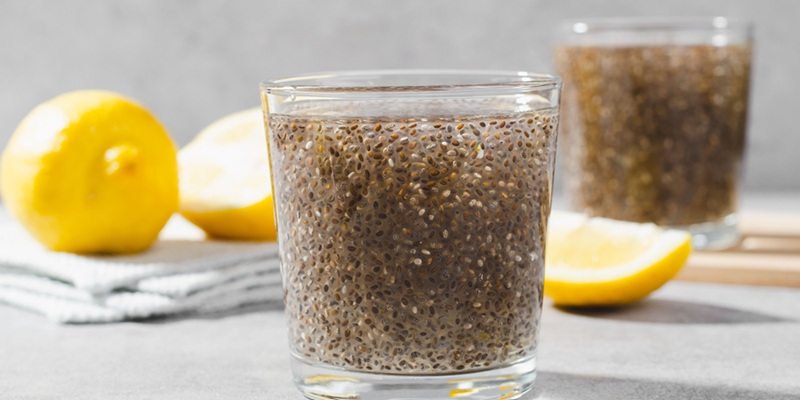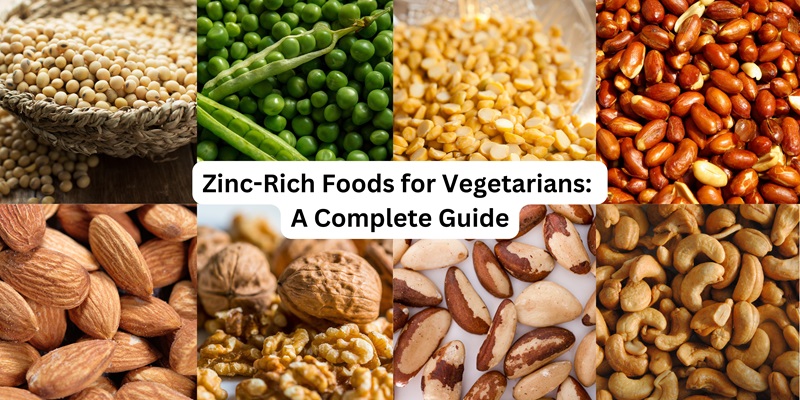Sunflower seeds are a delicious and nutritious snack that are packed with an array of health benefits. They are a great source of essential nutrients and antioxidants that can help boost your overall health and well-being.
Here are five amazing health benefits of sunflower seeds that you should know about :
- Rich in Nutrients Sunflower seeds are a great source of essential nutrients such as vitamin E, magnesium, selenium, and zinc. Vitamin E is a powerful antioxidant that can help protect your cells from damage caused by free radicals. Magnesium is important for bone health, while selenium is essential for thyroid function. Zinc is necessary for proper immune function and wound healing. Sunflower seeds also contain healthy fats, fiber, and protein, making them a great addition to any healthy diet.
- Improve Heart Health Sunflower seeds are high in healthy fats, which can help improve heart health. The monounsaturated and polyunsaturated fats found in sunflower seeds can help lower bad cholesterol levels, which can help reduce the risk of heart disease. Additionally, sunflower seeds are a good source of phytosterols, which are plant compounds that can help lower cholesterol levels.
- Boost Immune Function Sunflower seeds are rich in vitamin E and zinc, both of which are important for a healthy immune system. Vitamin E is a powerful antioxidant that can help protect your cells from damage, while zinc is essential for proper immune function. In fact, zinc has been shown to help reduce the duration and severity of colds and other respiratory infections.
- Support Healthy Skin Sunflower seeds are a great source of vitamin E, which is essential for healthy skin. Vitamin E is a powerful antioxidant that can help protect your skin from damage caused by free radicals. It can also help improve skin elasticity and reduce the appearance of fine lines and wrinkles. Additionally, sunflower seeds contain healthy fats, which can help moisturize your skin from the inside out.
- Promote Weight Loss Sunflower seeds are a great snack option for those trying to lose weight. They are low in calories but high in fiber and protein, which can help you feel full and satisfied for longer periods of time. Additionally, the healthy fats found in sunflower seeds can help improve insulin sensitivity, which can help reduce the risk of type 2 diabetes.
Nutrition information of sunflower seeds
Nutrition information for a 1-ounce (28-gram) serving of dry-roasted, unsalted sunflower seeds.
- Calories: 165
- Total fat: 14 grams
- Saturated fat: 1.5 grams
- Polyunsaturated fat: 9 grams
- Monounsaturated fat: 3.5 grams
- Cholesterol: 0 milligrams
- Sodium: 5 milligrams
- Total Carbohydrates: 6 grams
- Dietary Fiber: 2.5 grams
- Sugars: 1 gram
- Protein: 6 grams
- Vitamin E: 37% of the Daily Value (DV)
- Thiamin: 10% of the DV
- Magnesium: 9% of the DV
- Selenium: 32% of the DV
- Copper: 26% of the DV
Sunflower seeds are also a good source of other vitamins and minerals, including phosphorus, zinc, and folate. They are high in healthy fats, particularly polyunsaturated fats like linoleic acid, which has been linked to lower risk of heart disease. The fiber and protein content of sunflower seeds can also help keep you feeling full and satisfied.
How to incorporate sunflower seed into your diet
Sunflower seeds can be a delicious and nutritious addition to a variety of dishes. Here are some ways to incorporate sunflower seeds into your meals:
- As a snack: Roast sunflower seeds with a little bit of salt and enjoy them as a healthy snack.
- In salads: Sprinkle sunflower seeds on top of your favorite salad for a crunchy texture and nutty flavor.
- In baked goods: Add sunflower seeds to bread, muffin, or cookie recipes for a delicious and nutritious twist.
- In granola: Mix sunflower seeds with other nuts, oats, and dried fruit to make a homemade granola.
- In pesto: Use sunflower seeds instead of pine nuts in your favorite pesto recipe for a different flavor and texture.
- In smoothies: Add sunflower seeds to your favorite smoothie recipe for added protein and a nutty flavor.
- In stir-fries: Sprinkle sunflower seeds on top of stir-fries for added crunch and flavor.
- In sandwiches: Use sunflower seed butter as a healthy and tasty alternative to traditional nut butters.
- In yogurt: Mix sunflower seeds into yogurt for a protein-packed breakfast or snack.
- As a topping: Use sunflower seeds as a topping for oatmeal, yogurt bowls, or even ice cream.
Conclusion
Sunflower seeds are a delicious and nutritious food that can be a valuable addition to a healthy diet. Whether you’re looking to boost your nutrient intake, improve your health, or simply enjoy a tasty snack, sunflower seeds are definitely worth considering.






